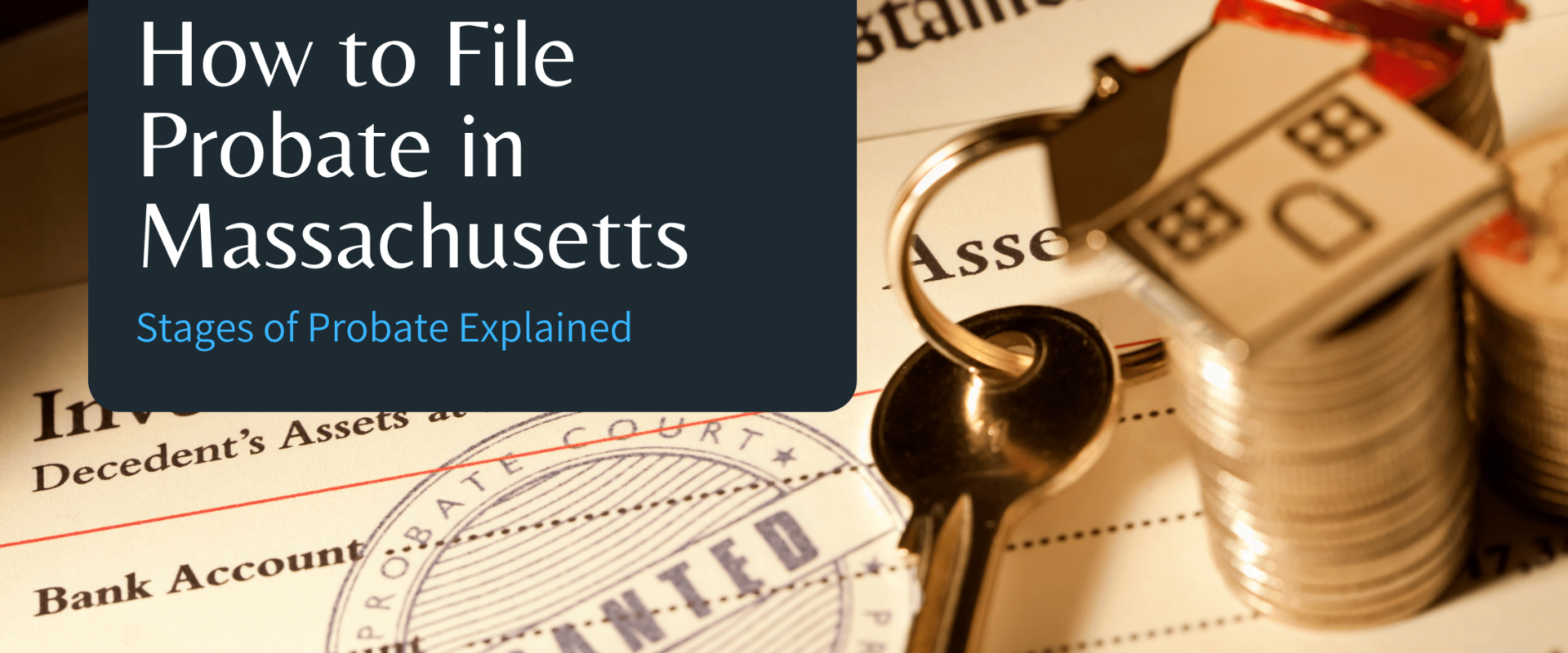
Probate is a tricky process, one that, like most others in real estate, blends the law with emotion. This process can feel overwhelming after the passing of a loved one or close friend. Each state has slightly different rules that accompany probate, and Massachusetts is no different. Due to the complicated and often emotional component accompanying someone’s passing, this process can feel overwhelming if not fully understood.
Through careful planning and guidance, you can make this process smoother and less intimidating. Here is more information on what probate is, what stages you must go through, how Massachusetts handles probate and frequently asked questions you may have.
What is Probate?
Probate is the legal process of handling and distributing a person’s assets following their passing. If the person who has passed has left a will, then the process goes through an executor who has been previously determined called the executor. If someone passes suddenly without a will in place, the process is slightly more complicated and involves an individual petitioning the courts to be named executor. If approved, the executor will receive what is called a ‘Letter of Probate,’ which gives them the power to oversee the distribution process.
In addition to handling distributing assets, probate is also the time in which family members can settle any debts or taxes for the individual who has passed away.
Formal vs. Informal Probate
When beginning the probate process, it is essential to understand if you need to file formal or informal probate with the state.
Informal Probate means that the process can be done outside of the formal court system through a Massachusetts Uniform Probate Code (MUPC) Magistrate. According to the state of Massachusetts, this process can be taken in the case that there is a will and all other necessary documentation and information already available. In this case, you will file a specific set of forms.
Formal Probate means that you must go through the court to begin and complete the process of probate. At least one court hearing will be necessary in this case, and a judge will be involved in the process. This process is taken when there is no will and if any essential information is missing or, other circumstances require the court to become involved in the case. With formal probate, you will file a specific set of forms.
Both processes require careful attention to detail, whether there is court involvement or not. Follow the Massachusetts guidelines carefully to ensure that the process goes smoothly and without additional fees.
What are the Stages of Probate?

The stages of probate are a good reference point if you are currently or soon to be going through the process. Understanding what is coming next can assist you in being fully prepared as you navigate the system. Here are the stages of probate:
Inventory assets
An important step in the probate process is determining what assets there are to distribute to loved ones. If the person has not carefully laid everything out in their will, this process can be time-consuming and laborious. Once the executor has compiled a detailed inventory, they must submit it to the court for approval. In many cases, the executor will need to open a checking account for this stage during this step. Note that if a checking account is opened for this process, the executor will also need to file for a taxpayer ID number from the IRS.
Pay outstanding debts
The estate executor is responsible for paying any outstanding debts that the individual may have had before their passing. The state of Massachusetts does not require the executor to notify each lender that they are going through the probate process.
File deceased individual’s taxes
An easy-to-forget step in the probate process is to file the last taxes for the deceased individual. To avoid the potentially hefty late fees, ensure that you file taxes before the deadline. If the estate exceeds $1 million, the executor must fill out a Massachusetts estate tax within a nine-month window of an individual’s passing.
Distribute property
Once all previous steps have been made, the executor can appropriately distribute property and other assets to the recipients. In the case that the individual left a will, that will determine who receives that property. If there was no will, the executor would instate ‘intestate succession,’ which determines who receives the property.
Finalize probate process
At the end of this process, the executor will need to finalize the process by filing a statement that essentially states that all necessary steps have been appropriately followed and completed. This statement, if approved, will close the estate.
Need More Help?
If you still have questions regarding your specific situation, we encourage you to reach out to us for more guidance and information. We know that the loss of a loved one is an emotional event that can be overcomplicated by probate legalities. Dealing with a trusted real estate agent specializing in this process can ease the strain of such a challenging situation.
Our licensed real estate agents will be able to answer any questions you may have regarding this process and assist you in your next steps. Navigating the necessary forms needed or understanding how to proceed can be challenging. Reach out to us for more information on how we can work with you to make this a more straightforward and smooth process.
To schedule a free, no-obligation consultation, call us at 781-309-7085 or contact us via e-mail. Or learn more about how to sell a house in probate here.

